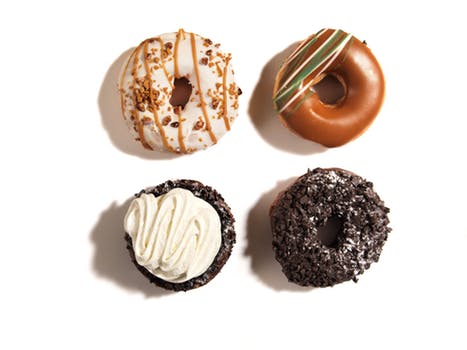
Happy new year, Be healthy Africa Family. For those of you who make resolutions for the new year and set health goals, this article is for you.
Developing Healthy Habits

For some, achieving a health goal, say, losing 10kg in 2021, is very doable. But what happens after you achieve it? Those who are experienced at losing weight will tell you that maintaining weight loss is the real work. Many studies show that people who succeed at weight loss tend to gain the weight back in a year or so.
First, let me say that achieving health goals should not and cannot be something you tick off your list once you achieve it. It is a good goal. However, once it is achieved and you move on to other things, you are likely to go back to square one. A key aspect of health/healthy living is sustainability. A lifestyle change is required. It entails giving up the old you and building up a new one to accommodate this new lifestyle. To make it stick, you need to change how you think and operate to accommodate and maintain the changes you have made. In summary, forget ticking off a list and focus on developing lifelong habits.
Changing Habits

It is a worthy goal to try to stop bad habits and pick up new ones. But it is easier said than done. Behaviour change is one of the most difficult things to do (this is why it is important to train children with good habits early on). Psychologists say that it is better to pick up new habits that can replace the bad ones than to focus on eliminating a bad one. In summary, instead of working hard at eliminating bad ones, work harder at picking up good habits that can easily replace the bad ones.
Taking Tiny steps

To change or adopt lifelong habits, trying to achieve it in giant strides have led to failure, fatigue and for some, inability to sustain even when achieved. Renowned professors of psychology and people who have focused on behaviour change now say that the better way to proceed is through tiny steps/habits (e.g. Prof. BJ Fogg) or atomic habits (James Clear). They talk about making tiny changes that might appear small and unimportant but would eventually cause significant change through compound interests. So, the same goes for health goals. If you want to eat better, map out what needs to be changed and then chip at it little by little. For example, if you want to change your diet to a healthy one – say incorporate fruits and vegetables and more beans, cut down on sugary foods, reduce salty foods – you can start by including an extra serving of vegetables or fruits than what you used to or ensure you eat beans on two days a week. It is also important to replace those fruits on the days you usually eat the sugary foods and then stick to it for a while before increasing the number of times you eat beans or more fruits and vegetables. In summary, take tiny but purposeful and sustainable steps towards improving your health.
Understanding Yourself

No two people are the same. Because someone achieved a goal in a certain way doesn’t mean that the style would work for you. The best plan for weight loss or achieving another health goal is the plan that YOU can carry out. So, you need to understand yourself, be present to yourself. Spend time reflecting and reviewing how you are doing things and what would work best for you. This will allow you to reinforce the good actions, revise or improvise on actions that are not working and change tactics if need be. In summary, know thyself.
Being Consistent

I think that this is the most important part and it flows well with all the other points. Whether you are developing lifelong habits, trying to stop bad ones, taking tiny steps, and understanding yourself, you have to keep at it. Whatever your goals are, however you plan to achieve them, if you are not consistent, you will not get your result. You may not execute the perfect brisk walking or healthy plate, but when you take a step that should cause a change and you keep at it, you will achieve results.
Handling Setbacks and lapses
Lastly, just like in every aspect of life, we all experience setbacks when trying to achieve something. This is one of the hardest part in changing behaviour because set backs will occur and the success of you adopting a new habit may strongly depend on how you handle these occurrences.
So, to handle this stage, you need to ask yourself, “what did I learn from this setback?”, “what should I do to get back into action?”, “how do I treat myself when handling this phase?”. These are important questions that when you answer then, they can help you keep moving on. In summary, setbacks will come but you should have an implementation intention for handling them. Be ready for them.
In a nutshell, the beginning of a year is an opportunity to start something great. Of course, you can start anytime. It’s all about the mindset. If you’re into new year resolutions, you can learn from this article, practice them and enjoy the rewards. I aspire to inspire you to eat better and live better. Happy new year BehealthyAfrica family.

